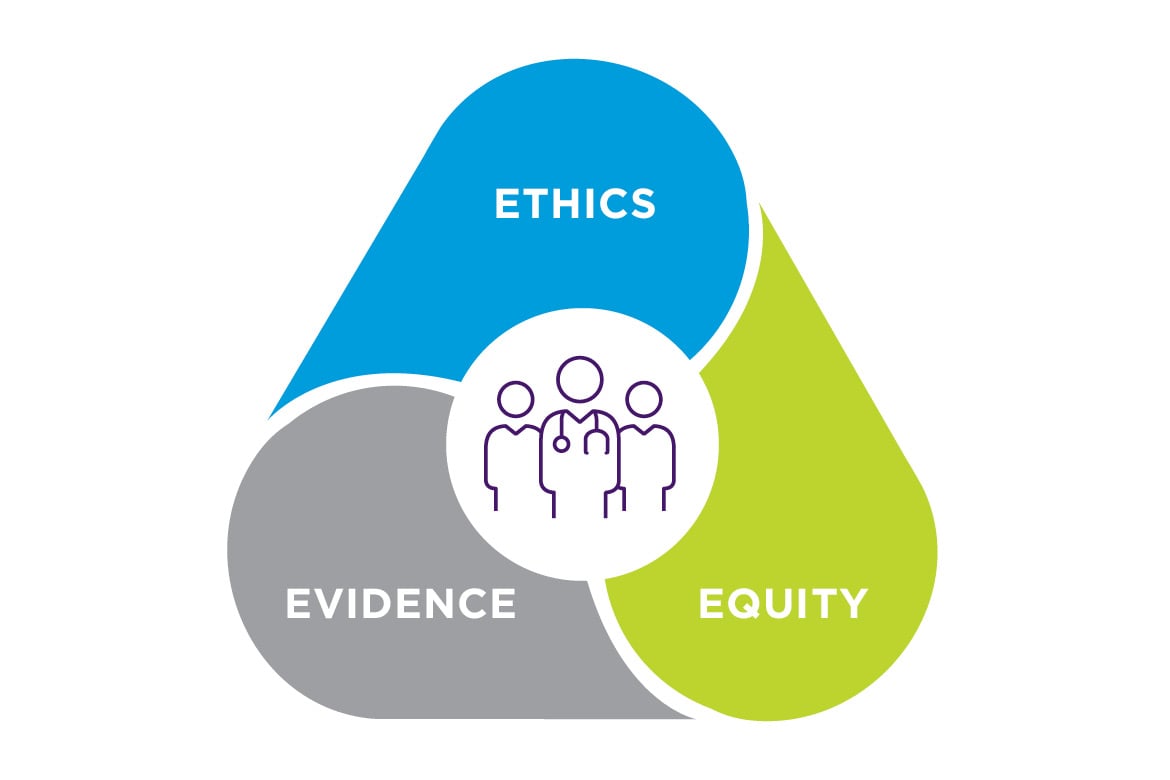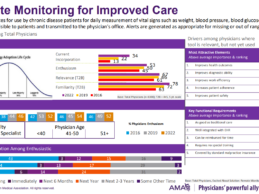What You Should Know:
- The American Medical Association (AMA) today released seven new principles for augmented intelligence (AI) development, deployment, and use, marking a critical step toward fostering a consistent governance structure for advancements in healthcare technology.
- Building upon current policy on AI, the principles serve as the cornerstone for AMA advocacy on AI and underscore the organization's commitment to supporting the implementation of national governance policies
Read More
American Medical Association
Audio-Only Telehealth Remains Common at Safety Net Clinics, Study Finds
What You Should Know:
Audio-only telehealth visits for both primary care and mental health services remained common at safety net clinics in California since the start of the COVID-19 pandemic, according to a new RAND Corporation study.
The RAND study published in the Journal of the American Medical Association found that in August 2022 audio-only visits still accounted for 1 in 5 primary care visits and 2 in 5 behavioral health visits among people who received care at Federally
Read More
New Medical Billing Codes You Should Know About
Physicians need to keep their billing and coding right to ensure seamless reimbursements from payers. Similarly, they should stay updated with the latest coding changes to keep their revenue cycle intact. In addition, running a successful medical practice is a daunting task as the providers need to stay updated with the industry guidelines. The year 2023 is bringing changes in medical codes to help providers reduce their burden and streamline patient care. So, providers need to stay focused on
Read More
Generative AI Enters Healthcare with First Major Rollout that will Support 140+ Hospitals and 15,000+ Physicians
What You Should Know:
- Abridge, the leader in AI-powered medical documentation, announced a partnership with The University of Kansas Health System that will mark the most significant rollout to date of generative AI in healthcare.
- Abridge has already helped more than 2,000 clinicians and served more than 200,000 patients. By delivering a solution that optimizes patient-provider communication, the new partnership has the potential to serve and support more than 1,500 practicing
Read More
Included Health, Solv Partner to Connect Virtual & In-Person Care
What You Should Know:
- Solv today announced the launch of Solv Final Mile Network, the first solution to bridge the gap from online navigation and virtual care to in-person, local medical care across the country.
- Built on the scale of Solv’s national network of providers, Solv Final Mile technology makes continuity of the patient care journey possible, by eliminating the friction between digital care and same-day, in-office visits for providers and their patients. Included Health, a
Read More
Why It’s Time for Intelligent Prior Authorization
The Centers for Medicare & Medicaid Services (CMS) recently proposed a new rule to advance interoperability and improve the prior authorization (PA) process for Medicare and Medicaid patients. Specifically, the rule stipulates that health plans adopt electronic prior authorization processes, adhere to shorter turnaround times, clearly communicate denial reasons, publish key metrics annually, and implement the Fast Healthcare Interoperability Resources (FHIR) Application Programming Interface
Read More
Why Speech Therapy is an Effective Treatment to Counter the Health Challenge of Social Determinants of Health (SDoH)
Over recent years, the virtual speech therapy delivery model has intersected with a host of healthcare disruptions -- value-based care delivery, the COVID-19 pandemic and the influence of social determinants of health (SDoH) have reshaped healthcare delivery. There has been a seismic move away from a provider-centric delivery model to a patient-centric model. This innovation has been made much easier with the ever-present catalyst of technology and its increased patient acceptance.
Speech
Read More
Digital Health Adoption Reaches New Heights Among Physicians
What You Should Know:
- Physicians are increasingly seeing the advantages of digital health solutions since 2016 when the American Medical Association (AMA) first investigated the motivations, requirements, and uses of digital health technology among physicians.
- New AMA digital health research released today shows increased rates of digital health adoption among physicians, provides deep insight into the essential qualities that physicians expect from digital health
Read More
Health Data Privacy: Majority of Patients Demand Accountability, Transparency
What You Should Know:
- A new examination of patient perspectives on health data privacy illustrates unresolved tension over the eroding security and confidentiality of personal health information in a wired society and economy.
- More than 92% of patients believe privacy is a right and their health data should not be available for purchase, according to a survey released by the American Medical Association (AMA).
Privacy and Health Information Accessibility
The survey of 1,000
Read More
Quality Improvement: Eliminating the Silo Effect in Healthcare Organizations
The healthcare industry has always been under pressure to find ways to provide consistently improving patient satisfaction and outcomes in the face of a rapidly changing medical and regulatory environment. In the wake of the COVID-19 pandemic, the pressure has only accelerated; improvement in patient outcomes now can mean the difference between viability and non-viability for a hospital system.
Collaboration is key to the ability to improve patient outcomes. Without all of the teams
Read More









